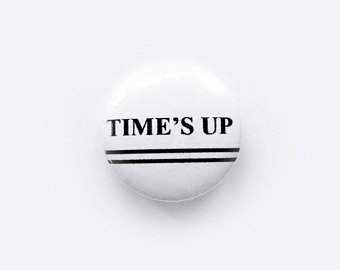In the first of a series of interviews running throughout this week to mark the anniversary of the first global Women’s March, Cerith Mathias speaks to Sian Norris, writer and founder and Director of the Bristol Women’s Literature Festival about an extraordinary 12 months, where discussions on issues of sexism, gender equality and sexual harassment have been front and centre.
This weekend marked a year since the Women’s March, where, on the first day of Donald Trump’s presidency, millions of people took to the streets in over 600 locations across the globe to highlight concerns over women’s rights.

A year on, further marches have been held in cities across the US and in the UK, including a gathering of thousands outside Downing Street on Sunday, with speeches from women’s rights activists including Helen Pankhurst – great-granddaughter of suffragette Emmeline Pankhurst.
This year’s marches were also part of the Time’s Up campaign, launched in January by women in Hollywood calling for an end to sexual assault, harassment and inequality in the workplace, following the Weinstein scandal and the testimonies of women sharing their experiences through the #MeToo movement.
Cerith Mathias: A year on from the women’s marches, how much progress has been made with regards to highlighting the issues and inequalities faced by women?
Sian Norris: So much happened so quickly. Straight after the march Trump signed to stop federal aid funding abortion providers and I think issues like that have been buried in the rollercoaster of the last 12 months. There’s not been much focus on women’s reproductive and economic inequality in the States, because we are still very stuck on this media narrative about the ‘white working-class man and Trump’. But there is definitely a louder conversation happening about sexual violence and how that is a cause of women’s inequality. Now it’s time to move on from simply highlighting it, and start changing it.
Do you think the march set the tone for some of the changes we’ve seen over the past 12 months?
Yes, in lots of ways. One of the things I said at the time of the march was that this was an example of women raising up their voices. Sexual assault – which the President was accused of multiple times – is a way of brutally silencing women. By marching, shouting, chanting, coming together, women were refusing to be silenced. We were saying NO as loud as we could.
With campaigns such as #MeToo and Time’s Up, are women feeling more encouraged and supported when speaking out about experiences of inequality and harassment now than perhaps they were prior to 2017?
Women have always spoken out about sexual violence and harassment, which I think is important to note. I think what was shocking, exciting and changing about #MeToo was there were so many women suddenly talking at once. And it was scary at times, as well as empowering. There were moments when I started to feel anxious about it because of this huge outpouring that forced me and lots of women to confront their own histories and own experiences in a way that could be difficult.
I have two concerns about #MeToo.
First is the backlash – it’s been fast, and it’s been vicious. Women spoke out and almost immediately we had men and some women telling us our experiences were petty, that we were weak or victims. This was so much nonsense, women speaking up and naming sexual violence is one of the hardest things to do and requires great strength. The force of the backlash shows how scared men are of women’s voices.
The second is that the onus is always on women to speak. To bear our souls, to share our pain, to relive trauma and risk being vilified. I think it’s time for men to do their own #MeToo. As in – ‘yes, I behaved badly;’ ‘Yes, I stood by when my mate pressured a girl, or made a sexist joke.’ It can’t always be on women to do the work. Men need to step up.
But all in all, I think these two campaigns have made a vast difference in giving women a platform and forcing people to listen.
In the USA, the march is being credited in part with an increase in the number of women standing for public office. Given that this year marks the centenary of partial suffrage in the UK, what are the barriers still facing women in this arena?
The UK is embarrassingly poor on women’s representation in parliament.
I would say now that one of the main barriers to women entering politics is abuse. The level of abuse women MPs receive, particularly BAME women, is utterly terrifying. I have been on the receiving end of abuse and I don’t know how these women can cope getting it day after day. And the press needs to stop fuelling the abuse. They have to reflect on their own behaviour.
We have to do something about sexism and violent misogyny where men target women with a voice. We’re less than two years since a woman MP was murdered in the street by a violent racist misogynistic terrorist.
What are the changes you’d like to see take place in 2018?
Global feminist revolution.
I would like to see those men who have been outed and accused of sexual assault and harassment properly dealt with. It’s not good enough, for example, for men to resign their ministerial posts and not their jobs. We’ve spoken out. We’ve done our part. Now let’s see these men held to proper account.
Sian Norris is a novelist and regular contributor to a wide array of publications, including The Guardian, The New Statesman and many others.












